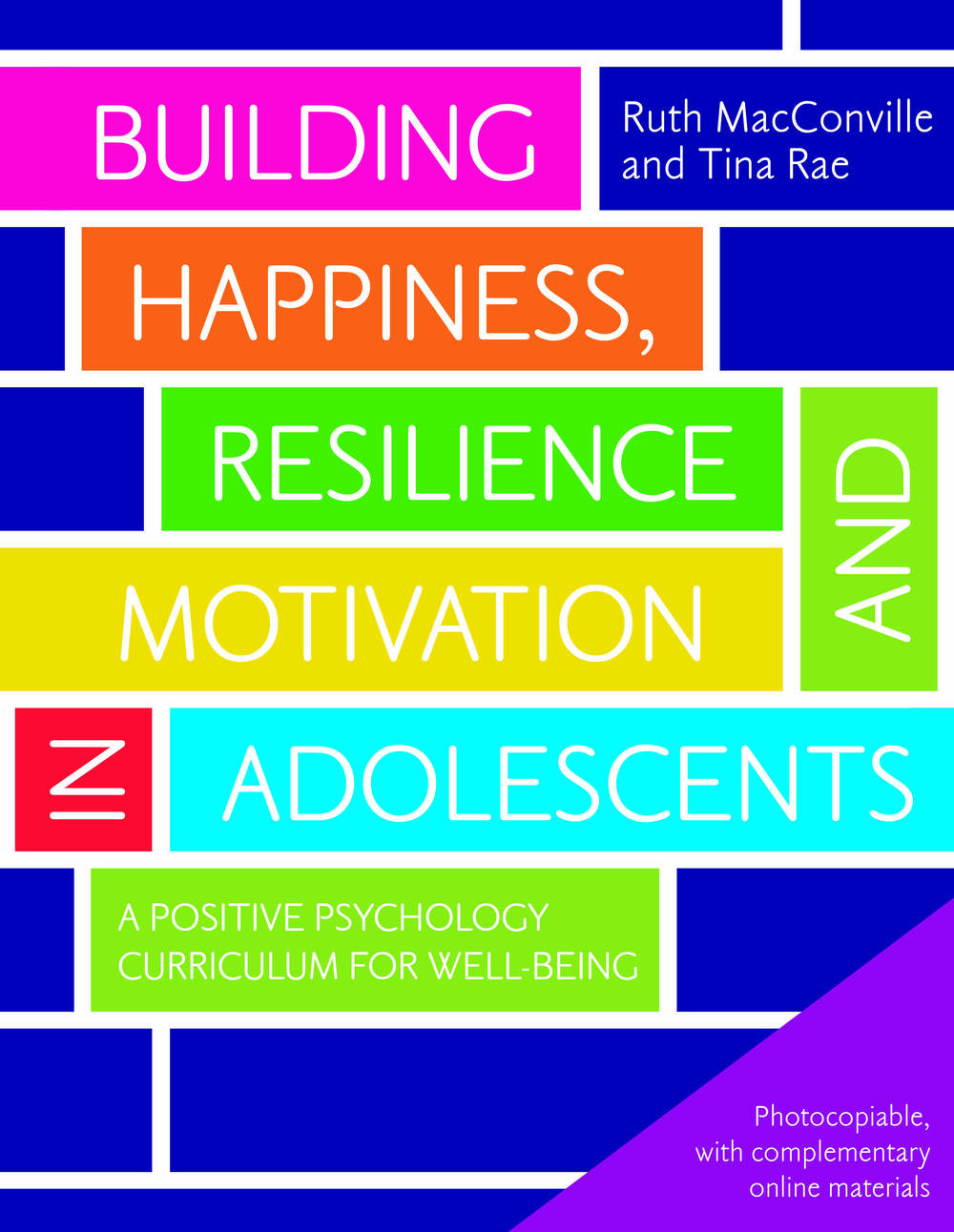
BUILDING HAPPINESS, RESILIENCE AND MOTIVATION IN ADOLESCENTS
of related interest
What Children Need to be Happy, Confident and Successful
Step by Step Positive Psychology to Help Children Flourish
Jeni Hooper
ISBN 978 1 84905 239 9
eISBN 978 0 85700 483 3
Working with Children and Teenagers Using Solution Focused Approaches
Enabling Children to Overcome Challenges and Achieve their Potential
Judith Milner and Jackie Bateman
ISBN 978 1 84905 082 1
eISBN 978 0 85700 261 7
A Short Introduction to Promoting Resilience in Children
Colby Pearce
ISBN 978 1 84905 118 7
eISBN 978 0 85700 231 0
JKP Short Introductions series
Helping Adolescents and Adults to Build Self-Esteem
A Photocopiable Resource Book
Deborah M. Plummer
ISBN 978 1 84310 185 7
eISBN 978 1 84642 051 1
The Big Book of Therapeutic Activity Ideas for Children and Teens
Inspiring Arts-Based Activities and Character Education Curricula
Lindsey Joiner
ISBN 978 1 84905 865 0
eISBN 978 0 85700 447 5
Cool Connections with Cognitive Behavioural Therapy
Encouraging Self-esteem, Resilience and Well-being in Children and Young People Using CBT Approaches
Laurie Seiler
ISBN 978 1 84310 618 0
eISBN 978 1 84642 765 7
Communication Skills for Working with Children and Young People
Introducing Social Pedagogy
3rd edition
Pat Petrie
ISBN 978 1 84905 137 8
eISBN 978 0 85700 331 7
Ruth MacConville and Tina Rae
BUILDING HAPPINESS, RESILIENCE AND MOTIVATION IN ADOLESCENTS
A Positive Psychology Curriculum for Well-Being

Jessica Kingsley Publishers
London and Philadelphia
First published in 2012
by Jessica Kingsley Publishers
116 Pentonville Road
London N1 9JB, UK
and
400 Market Street, Suite 400
Philadelphia, PA 19106, USA
www.jkp.com
Copyright Ruth MacConville and Tina Rae 2012
All rights reserved. No part of this publication may be reproduced in any material form (including photocopying of any pages other than those marked with a  , storing it in any medium by electronic means and whether or not transiently or incidentally to some other use of this publication) without the written permission of the copyright owner except in accordance with the provisions of the Copyright, Designs and Patents Act 1988 or under the terms of a licence issued by the Copyright Licensing Agency Ltd, Saffron House, 610 Kirby Street, London EC1N 8TS. Applications for the copyright owners written permission to reproduce any part of this publication should be addressed to the publisher.
, storing it in any medium by electronic means and whether or not transiently or incidentally to some other use of this publication) without the written permission of the copyright owner except in accordance with the provisions of the Copyright, Designs and Patents Act 1988 or under the terms of a licence issued by the Copyright Licensing Agency Ltd, Saffron House, 610 Kirby Street, London EC1N 8TS. Applications for the copyright owners written permission to reproduce any part of this publication should be addressed to the publisher.
Warning: The doing of an unauthorised act in relation to a copyright work may result in both a civil claim for damages and criminal prosecution.
All pages marked  may be photocopied for personal use with this program, but may not be reproduced for any other purposes without the permission of the publisher.
may be photocopied for personal use with this program, but may not be reproduced for any other purposes without the permission of the publisher.
Library of Congress Cataloging in Publication Data
MacConville, Ruth.
Building happiness, resilience and motivation in adolescents : a positive psychology curriculum for well-being / Ruth MacConville and Tina Rae.
p. cm.
Includes bibliographical references.
ISBN 978-1-84905-261-0 (alk. paper)
1. Positive psychology. 2. Happiness in adolescence. 3. Resilience (Personality trait) in adolescence. 4. Motivation (Psychology) in adolescence. I. Rae, Tina. II. Title.
BF204.6.M33 2012
155.519--dc23
2011048663
British Library Cataloguing in Publication Data
A CIP catalogue record for this book is available from the British Library
ISBN 978 1 84905 261 0
eISBN 978 0 85700 548 9
Printed and bound in Great Britain
CONTENTS
Part I
FACILITATING THE PROGRAMME
Section I
INTRODUCTION
Welcome to our book. For those readers who want to find out immediately about delivering the programme which forms its backbone, it might be best to turn to Part II of this resource. For those readers who want to know more about the theory behind the programme and the context of the book, read on.
Positive psychology, properly understood and applied, offers insight for every individual within the school. This book translates the key findings of this new science into a resource that will enable schools to build a strengths approach based on this new science. Its aim is to provide a practical resource for practitioners who want an overview of the research and a rich and varied repertoire of activities distilled into a stand-alone curriculum that they can deliver in their own classrooms.
The importance of individuals knowing and using their strengths is central to positive psychology because they relate to understanding and building each individuals psychological health and well-being. Greater well-being in turn enhances learning, the traditional goal of education. Martin Seligman (2011), the architect of positive psychology, explains that this is because positive mood produces broader attention, more creative thinking and more holistic thinking whereas negative mood produces narrowed attention and critical and analytical thinking.
Although both positive and negative thinking are important in the right situation, Seligman suggests that schools all too often emphasise critical thinking and following orders rather than creative thinking and learning new stuff, and this frequently leads to disenchantment with learning and disengagement with school. He writes in the modern world I believe that we have arrived at an era in which more creative thinking, less rote following of orders and yes, even more enjoyment will succeed better (Seligman 2011, p.80).
A strengths approach
Ilona Boniwell (2006), founder of the European Network of Positive Psychology, explains that a strengths approach challenges two basic assumptions about human nature. First, that everyone can learn to be competent in almost anything; and second, that the greatest potential for growth is in the areas of the persons greatest weakness. Positive psychologists suggest that top achievers know their capabilities, set their goals slightly above their current level of performance and therefore achieve them. In contrast, low achievers are unaware of their abilities and frequently set unrealistically high goals that they fail to achieve. Top achievers build their lives on their talents and strengths and set out to manage their weaknesses rather than develop them.
The purpose of this resource is to enable students to recognise their strengths and talents, develop them and create new ways of using them in their daily lives. Research on the value of strengths suggests that knowing and following ones strengths:
- encourages insight and perspective in ones life
- generates optimism
- provides a sense of direction
- helps to develop confidence
- generates a sense of vitality
- brings a sense of fulfilment
- helps achieve ones goals.
The development of certain strengths also helps build resilience and provides a buffer against depression and other mental health issues.
It is increasingly recognised that schools have a vital role to play in promoting emotional health and well-being and enable children and young people to develop their capabilities and flourish. Recent decades have seen big increases in the proportion of young people with social, emotional and behavioural difficulties. Mental health issues are increasingly prevalent in young people and these difficulties affect all areas of a young persons life and increase the likelihood of mental health difficulties later on in adult life. Seligman writes:
Next page
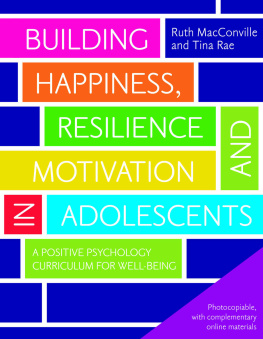
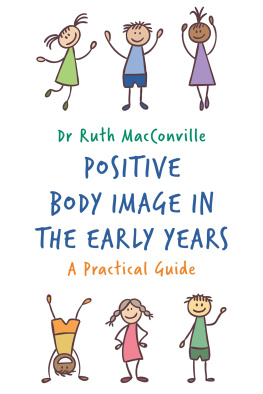
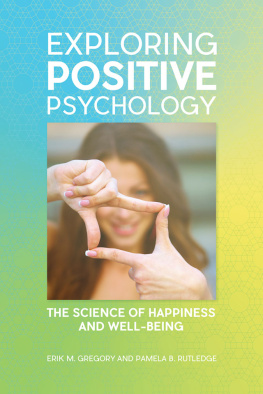


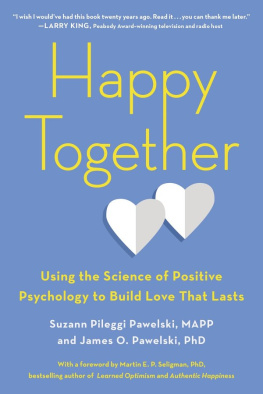
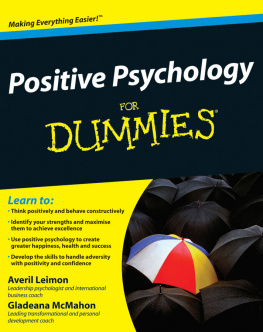

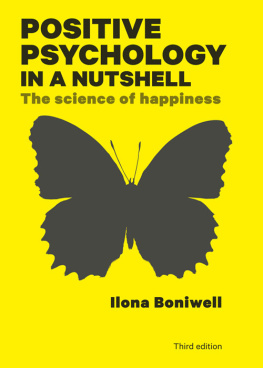

![Sarah Lewis [Sarah Lewis] - Positive Psychology and Change](/uploads/posts/book/124055/thumbs/sarah-lewis-sarah-lewis-positive-psychology-and.jpg)
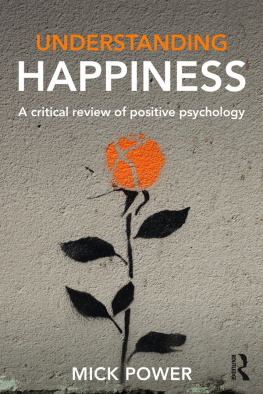
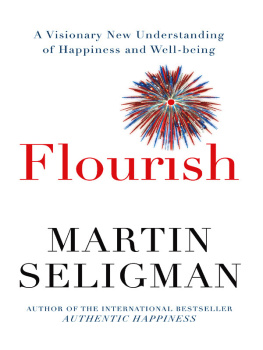


 , storing it in any medium by electronic means and whether or not transiently or incidentally to some other use of this publication) without the written permission of the copyright owner except in accordance with the provisions of the Copyright, Designs and Patents Act 1988 or under the terms of a licence issued by the Copyright Licensing Agency Ltd, Saffron House, 610 Kirby Street, London EC1N 8TS. Applications for the copyright owners written permission to reproduce any part of this publication should be addressed to the publisher.
, storing it in any medium by electronic means and whether or not transiently or incidentally to some other use of this publication) without the written permission of the copyright owner except in accordance with the provisions of the Copyright, Designs and Patents Act 1988 or under the terms of a licence issued by the Copyright Licensing Agency Ltd, Saffron House, 610 Kirby Street, London EC1N 8TS. Applications for the copyright owners written permission to reproduce any part of this publication should be addressed to the publisher.